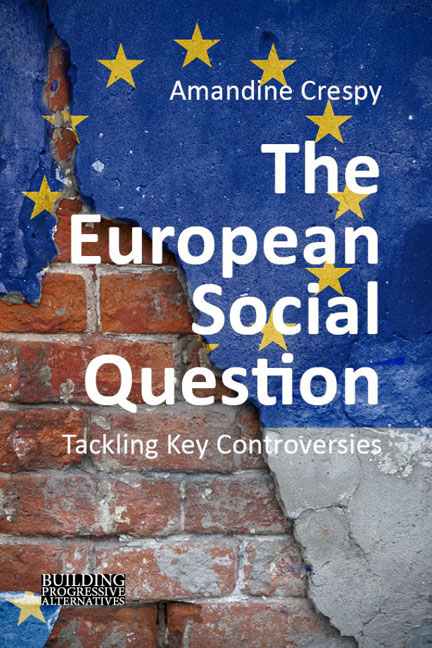Book contents
- Frontmatter
- Contents
- Acknowledgements
- Abbreviations and acronyms
- Dedication
- Introduction: “Social Europe” – irrelevant, catching up or dangerous?
- 1 What is the European social question?
- 2 Is the EU a key player in addressing social issues?
- 3 Are socially minded actors too weak in EU policy-making?
- 4 Is European social regulation a thing of the past?
- 5 Does liberalization undermine social cohesion?
- 6 Does the European social dialogue really protect European workers?
- 7 Does soft coordination support welfare states?
- 8 Is redistribution unconditional?
- 9 Is the EU fit for the social challenges of the twenty-first century?
- Conclusion: from the social question to the democratic question
- Index of CJEU judgments
- References
- Index
Conclusion: from the social question to the democratic question
Published online by Cambridge University Press: 20 December 2023
- Frontmatter
- Contents
- Acknowledgements
- Abbreviations and acronyms
- Dedication
- Introduction: “Social Europe” – irrelevant, catching up or dangerous?
- 1 What is the European social question?
- 2 Is the EU a key player in addressing social issues?
- 3 Are socially minded actors too weak in EU policy-making?
- 4 Is European social regulation a thing of the past?
- 5 Does liberalization undermine social cohesion?
- 6 Does the European social dialogue really protect European workers?
- 7 Does soft coordination support welfare states?
- 8 Is redistribution unconditional?
- 9 Is the EU fit for the social challenges of the twenty-first century?
- Conclusion: from the social question to the democratic question
- Index of CJEU judgments
- References
- Index
Summary
As a new political constellation has arisen out of the recovery agenda, we see the EU building its role in socio-economic governance. Brexit, the Covid-19 pandemic and the climate emergency not only make the European social question more acute, they also pose it in new ways that emphasize the interdependency binding European societies together. Over the past few years, EU institutions have operated a non-negligible relaunch of their social agenda, stressing the need for social cohesion; ventured into new social territories such as minimum incomes; strengthened their regulatory and bureaucratic capacities, as in the field of health; and significantly increased the budgetary resources of the EU, looking to introduce new sources of fiscal revenue in the near future. All of this, however, happened without much debate in national arenas. The role of the EU in the social realm remains a political taboo and even more so a formalization of such a role in legal terms. Yet, in order to allow the EU to address the European social question in an effective and legitimate fashion, generating a widely shared understanding of what the EU is actually doing and what it should do in the future constitutes a key endeavour. To conclude this book, it is therefore argued that the normative basis of EU social policy needs to be strengthened, from a conceptual and democratic point of view.As a starting point, it is useful to consider the four ideal-typical models distinguished by Claassen et al. (2019)
to rethink the role of the EU in social policy. First, the EU could be a passive spectator if both the formulation of norma¬tive ideals and consequential institutional arrangements were to remain exclu¬sively with national governments. Yet, as this book has shown, the state of EU integration has already overtaken this model and a return to full national sover¬eignty in social policy would require deconstructing all existing EU instruments and resources, as some “defenders of nation states” have claimed (see the Introduction). Against the backdrop of the pandemic, however, Europeans are currently moving in the opposite direction by endowing the EU with more tasks and resources.
- Type
- Chapter
- Information
- The European Social QuestionTackling Key Controversies, pp. 213 - 220Publisher: Agenda PublishingPrint publication year: 2022



